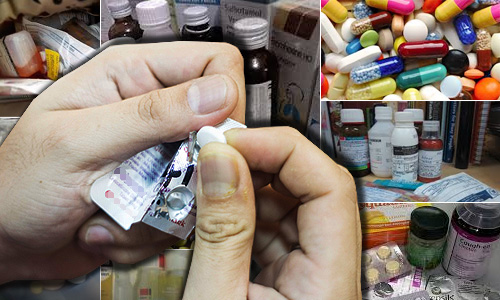The healthcare industry is supported by an array of disciplines each with its own training curriculum, standards and job descriptions - be it nursing, physiotherapy, dietetics, pharmacy or medicine. Each discipline supports the other and it is the seamless integration of the various disciplines that leads to optimal health care support for consumers and patients.
However the universal norm that doctors diagnose and prescribe while pharmacists audit and dispense is amiss in Malaysia and the notion to accord pharmacists their rightful duty to dispense medicines has always been met by contentious objections from the doctors.
But what is most bizarre and beyond comprehension is the Health Ministry’s stand on the issue in that they would not support dispensing separation. On what basis does the Health Ministry deny a profession of its fundamental role?
There are currently 14,500 pharmacists in the country with about 20 pharmacy schools producing approximately 1,200 pharmacy graduates annually. So the oft repeated argument over the last decades that there are insufficient pharmacists in the country to support dispensing separation does not hold water any more.
On the contrary we have a potential situation on our hands with pharmacists unable to obtain employment owing to the lack of demand for them in the absence of dispensing separation. To avoid this situation let us just close down all pharmacy schools and stop the training of pharmacists in the country with immediate effect since the Health Ministry has declared that it will not support dispensing separation, hence denying pharmacists of their fundamental role.
Medication safety has been identified by the World Health Organisation and other global Healthcare agencies such as US Food and Drug Administration, UK’s National Health Service as one of the main priority in addressing patient safety challenges.
In Australia it was reported in 2006 that about 10.4 percent of the 17.5 million people who make 95 million visits to their general practitioner annually will experience an adverse drug event - about one million being moderate or severe and 138,000 requiring hospitalisation.
A 2007 US Institute of Medicine report showed that medication errors originate most often during the medication prescribing process. At least half of these prescribing errors are detected and corrected when pharmacists review the safety and appropriateness of the medication.
Having the same doctor prescribe and dispense as in Malaysia eliminates that safety net. Currently at private clinics no one checks for the safety and appropriateness of the prescription and any potential for medication-related problems. The individual who dispenses the medications in these clinics does not have any pharmacy knowledge and any health-related qualification.
We recently highlighted a case to the Health Ministry where the medicines were wrongly labelled and the child nearly died. No one took any accountability for the event.
This brings us to the very important point of auditing and keeping records on usage of medicines. How are records kept when there is no separation of roles to ensure a check and balance? How are patients assured that the medicine being prescribed is the optimal treatment for the condition?
‘Attractive bonus schemes to doctors’
It is common knowledge that pharmaceutical companies offer attractive bonus schemes to doctors to drive the sales of their products. In these bonus schemes the price is lowered with bulk purchase of a product. This would mean a higher margin for the doctor. Hence dispensing separation will lead to a potential loss of income for doctors.
This is one of the main reasons doctors are fighting tooth and nail to hold on to a function which is not within their legitimate scope of work. When doctors derive a substantial proportion of their income from the sales of the medicines, wouldn’t their professional judgment be compromised?
It is mind-boggling how the Health Ministry came to a decision not to support the urging for dispensing separation. A relevant question to ask is where is this precedent coming from? Are we looking at the developed world for best practices or are we looking at developing countries where lack of resources may still warrant the need for doctors to dispense.
Let’s look at the case of registration of new drugs. Reference is taken from countries like the US, UK, Canada, Australia, Sweden and France - all of which have dispensing separation. Even Taiwan and South Korea have moved towards dispensing separation in recent years. So why are we not following the precedent of these developed countries in the case of dispensing separation? Even developing countries like Indonesia and India have long practiced dispensing separation.
We have a national aspiration to attain developed country status by 2020. Yet in a very fundamental area of healthcare we are lagging behind and taking the retrogressive stand of not recognising the fundamental role of pharmacists. The debate has gone on for far too long. The arguments against dispensing separation used today are no different from those mentioned decades ago and are no longer relevant.
It’s time the Health Ministry took the bull by the horns and separate the roles of prescribing and dispensing in the interest of consumers and patients. As custodians of public health it is their duty to do so.
SM MOHAMED IDRIS is president, Consumers Association of Penang (CAP).


